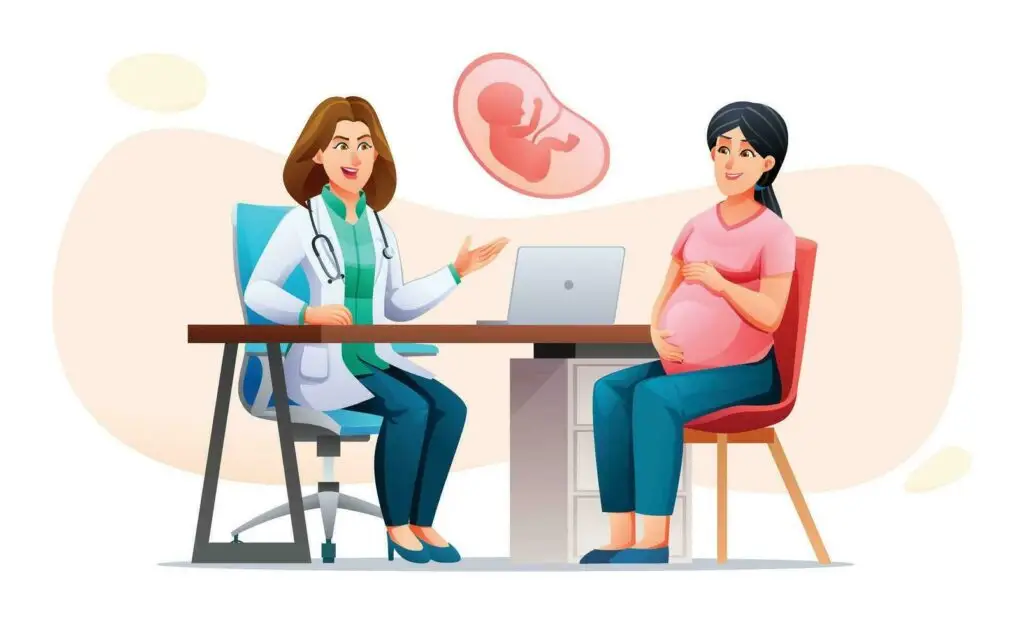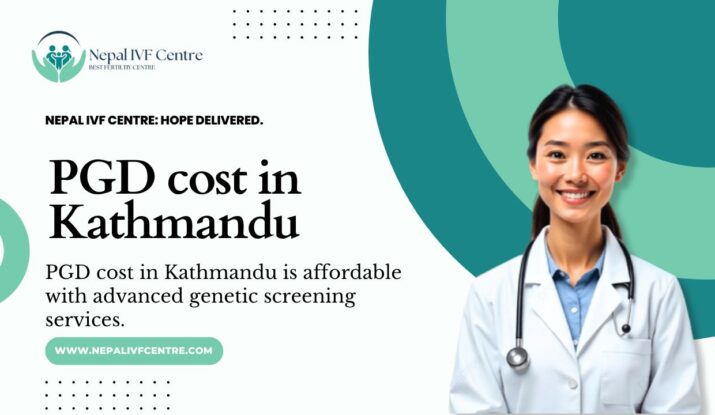For couples facing genetic challenges or those who have experienced repeated miscarriages, Preimplantation Genetic Diagnosis (PGD) offers a ray of hope. PGD is an advanced fertility treatment technique that helps identify genetic abnormalities in embryos before implantation during an IVF cycle. This allows only healthy embryos to be selected for transfer, increasing the chances of a successful pregnancy and reducing the risk of genetic disorders.
In Kathmandu, Nepal, PGD services are becoming increasingly popular due to the advancements in fertility clinics and the growing awareness among couples seeking better reproductive outcomes. In this article, we will explore the PGD cost in Kathmandu, what the procedure involves, who should consider PGD, and factors influencing its cost.

What is PGD?
Preimplantation Genetic Diagnosis (PGD) is a specialized procedure used alongside In Vitro Fertilization (IVF). It involves screening embryos for specific genetic disorders or chromosomal abnormalities before they are implanted into the uterus. PGD can identify conditions such as cystic fibrosis, thalassemia, Huntington’s disease, and chromosomal issues like Down syndrome.
The process includes creating embryos through IVF, allowing them to grow for a few days, and then removing a few cells from each embryo for genetic testing. Only embryos without genetic abnormalities are chosen for transfer into the woman’s uterus. PGD not only improves the chances of a healthy baby but also reduces emotional and financial stress associated with repeated IVF failures or miscarriages.
How is PGD Performed?
The PGD process is complex and involves several critical steps:
Step 1: Ovarian Stimulation and Egg Retrieval
The woman undergoes ovarian stimulation through fertility injections to produce multiple eggs. Once matured, the eggs are retrieved through a minor surgical procedure under sedation.
Step 2: Fertilization
The retrieved eggs are fertilized with sperm using conventional IVF or ICSI techniques to create embryos.
Step 3: Embryo Culture
The embryos are cultured for about 3 to 5 days until they reach the blastocyst stage.
Step 4: Biopsy
At the blastocyst stage, a few cells are carefully removed from each embryo. This biopsy does not harm the embryo’s development potential.
Step 5: Genetic Testing
The biopsied cells are sent for genetic analysis using advanced techniques like FISH (Fluorescence In Situ Hybridization), CGH (Comparative Genomic Hybridization), or NGS.
Step 6: Embryo Selection and Transfer
Based on the results, only healthy, chromosomally normal embryos are selected for transfer into the uterus.
Step 7: Embryo Transfer
One or two healthy embryos are transferred, and the remaining healthy embryos can be frozen for future use.

Average PGD Cost in Kathmandu
The average PGD cost in Kathmandu typically ranges between NPR 350,000 to NPR 550,000 (approximately USD 2,600 to USD 4,000), in addition to the standard IVF cycle cost. It is important to understand that PGD is not a standalone procedure; it is performed as part of the IVF treatment, meaning you will need to pay for both IVF and PGD.
The IVF cycle itself can cost between NPR 300,000 to NPR 450,000 depending on the clinic, making the combined cost of IVF + PGD fall somewhere between NPR 650,000 and NPR 1,000,000. These figures can vary based on several factors such as the fertility clinic’s reputation, laboratory facilities, the number of embryos tested, and the complexity of the genetic analysis required.
Factors Affecting PGD Cost in Kathmandu
Several elements can influence the overall PGD cost in Kathmandu:
1. Fertility Clinic Reputation
Top-rated fertility centers with advanced genetic laboratories often charge more but provide higher success rates and better patient care.
2. Technology and Equipment
PGD requires highly sophisticated equipment, such as micromanipulators and genetic testing machines, which can increase the procedure cost.
3. Type of Genetic Testing
Basic genetic screening costs less than testing for multiple or rare genetic disorders. Complex testing requires advanced techniques like NGS (Next Generation Sequencing), increasing the price.
4. Number of Embryos Tested
The more embryos tested, the higher the cost. Clinics may charge per embryo or offer packages for a fixed number of embryos.
5. Specialist Expertise
Highly experienced embryologists and geneticists add value but also slightly increase the treatment cost.
6. Additional Procedures
Procedures like embryo freezing, extra medication, or ICSI (Intracytoplasmic Sperm Injection) alongside IVF may add to the final bill.

Who Should Consider PGD?
PGD is not recommended for all IVF patients. It is mainly suggested for:
- Couples with a history of genetic disorders
- Women with recurrent miscarriages
- Women above 35 years of age
- Couples with repeated IVF failures
- Couples opting for gender selection (where legal)
- Carriers of chromosomal abnormalities
Using PGD helps in transferring only healthy embryos, significantly improving the chances of a successful pregnancy and healthy baby.
Success Rates of PGD in Kathmandu
The success rate of PGD largely depends on the woman’s age, the quality of embryos, and the expertise of the fertility clinic. In Kathmandu, the average PGD success rates are:
- Women under 35 years: 60%–70%
- Women between 35–40 years: 50%–60%
- Women over 40 years: 30%–40%
Choosing a reputed fertility center with an experienced embryology team can significantly improve your chances of success.
Advantages of PGD
- Reduces the risk of genetic diseases
- Increases the chance of a healthy pregnancy
- Lowers miscarriage rates
- Improves overall IVF success rates
- Gives options for family balancing where allowed
Disadvantages and Risks of PGD
- High cost (due to combined IVF + PGD expenses)
- Embryo biopsy may slightly impact embryo development (though rare)
- Emotional stress if no healthy embryos are found
- Ethical and legal considerations around embryo selection
Best Clinics for PGD in Kathmandu
Several fertility clinics in Kathmandu provide PGD services with international-standard facilities. Some well-known centers include:
- Nepal IVF Centre
- Norvic International Hospital Fertility Unit
- Om Hospital and Research Centre
- Vatsalya Natural IVF Fertility Centre
These centers are equipped with state-of-the-art technology and highly skilled embryologists, ensuring the best possible outcomes for patients.
How to Choose the Right PGD Clinic in Kathmandu?
When selecting a clinic, consider:
- The clinic’s success rates with PGD
- The technology and lab infrastructure
- Availability of experienced geneticists and embryologists
- Patient reviews and testimonials
- Transparency in pricing and procedures
Visiting the clinic, meeting the doctor, and discussing your expectations can help you make an informed decision.

Is PGD Worth the Cost?
While PGD adds a significant cost to your IVF journey, it offers immense benefits, particularly for couples at risk of passing on genetic diseases or those who have faced repeated IVF failures. It saves the emotional and financial burden of unsuccessful IVF cycles and offers peace of mind knowing that only healthy embryos are being transferred.
For many couples, investing in PGD is investing in the dream of a healthy child and a smoother fertility journey.
Why choose the Nepal IVF Centre?
A compassionate service provider like Nepal IVF Centre is an expert in the field of parenthood and supports patients in making their parents’ dreams come true. We, at Nepal IVF Centre, have in place a fully experienced team that works round the clock to custom-create specialised IVF treatment strategies for all patients. We guarantee attentive and sophisticated care to all patients while using specialised technology to maximise success rates.
Our understanding of the IVF emotional journey enables us to actively support you throughout the process. Furthermore, my treatment options include very affordable and quality value statements, making IVF available to more families. Lastly, in our firm belief, the combination of success and comfort, along with a welcoming environment, makes us the best choice for people planning to start or grow a family.
Conclusion
Preimplantation Genetic Diagnosis (PGD) is a powerful technique that helps couples achieve a healthy pregnancy. By testing embryos for genetic conditions before implantation, PGD significantly reduces the risk of inherited diseases and chromosomal abnormalities.
In Kathmandu, PGD is available at affordable costs, and fertility clinics here offer advanced technology combined with experienced embryologists. Whether you have a family history of genetic disorders or simply want to ensure a healthier pregnancy, PGD can be a smart and safe choice.
If you are considering PGD, it is crucial to select a trusted and reputed fertility center. With proper counseling, expert medical teams, and state-of-the-art laboratories, your dream of having a healthy baby can become a reality.
PGD is both an emotional and financial investment, so taking the right guidance and clearing all doubts at every step is important. Fertility clinics in Kathmandu provide excellent support and high-quality treatments, helping you move forward confidently.
In the end, PGD shines as a beacon of hope, offering future parents the chance to build a family — safely and confidently.
FAQs (Frequently asked questions)
What is the total cost of PGD with IVF in Kathmandu?
The total cost usually falls between NPR 650,000 to NPR 1,000,000, including IVF and PGD.
Is PGD available in all fertility clinics in Kathmandu?
No, only a few specialized clinics with genetic testing labs offer PGD services.
How long does the PGD process take?
PGD testing typically adds a few days to the IVF cycle, but the overall process from stimulation to embryo transfer may take about 4–6 weeks.
Is PGD 100% accurate?
While highly reliable, PGD has an accuracy rate of about 98%–99%, depending on the method used.
Does PGD guarantee pregnancy?
No, PGD increases the chances of a healthy pregnancy but does not guarantee conception.
Can I choose the gender of my baby through PGD?
Gender selection through PGD is regulated and not permitted for non-medical reasons in Nepal.
Is PGD safe for embryos?
Yes, when performed by experienced embryologists, the embryo biopsy used in PGD is very safe and does not harm embryo development.

